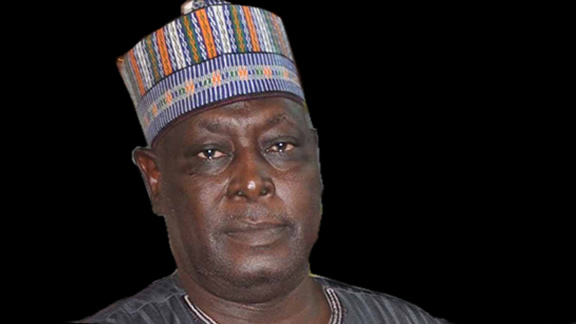Babachir Lawal, a former Secretary to the Government of the Federation during Buhari’s initial term, has ignited political discourse with explosive claims of covert opposition brewing within the ruling All Progressives Congress (APC). In a televised interview, Lawal asserted that several APC governors and high-ranking members are discreetly aligning with an opposition coalition aiming to oust the current administration in the 2027 elections. These individuals, he alleges, are disillusioned with the APC’s direction and believe in the coalition’s potential to provide a superior alternative. While maintaining a facade of loyalty, these covert operatives are actively working against the party from within, mirroring a strategy previously employed by the APC itself. Lawal’s own recent resignation from the APC underscores the growing internal dissent.
Lawal’s criticisms extend to the stifling atmosphere within the APC, likening it to an environment of intimidation and suppressed dissent. He portrays a party where free speech is curtailed and advice is misconstrued as disloyalty. This environment of fear, according to Lawal, has fueled frustration among members who feel unable to express legitimate concerns to the leadership. The former SGF highlights the irony of adopting a strategy pioneered by the APC – remaining within a party while working for another – citing former Rivers State Governor Nyesom Wike as a master of this political maneuver. This approach, he argues, underscores the deep-seated divisions and lack of internal cohesion within the ruling party.
The disillusionment, Lawal contends, extends beyond party insiders to encompass many former Tinubu supporters. These individuals, once optimistic about Tinubu’s presidency, now find themselves disappointed by his governance, sparking a desire for a more effective alternative. Lawal emphasizes the legitimacy of seeking a better government through political action, pointing out the importance of replacing underperforming administrations for the betterment of the nation. This pursuit of improved governance transcends party lines, uniting individuals from diverse backgrounds with a shared goal of positive change.
Lawal also sheds light on the recent influx of politicians joining the APC, portraying these moves as survival tactics driven by self-interest. He suggests these politicians recognize Tinubu’s virtually guaranteed renomination and seek to secure their political futures by aligning with the perceived power center. He argues they fear being marginalized or eliminated within the opposition, prompting their migration to the ruling party. However, Lawal emphasizes that this migration is a purely political calculation, unsupported by genuine grassroots movements. The people, he asserts, remain unconvinced and unmoved by these orchestrated displays of party loyalty.
The opposition coalition, Lawal clarifies, is not solely focused on former Vice President Atiku Abubakar, but represents a collective endeavor involving various prominent figures across the political spectrum. This collaboration, he explains, stems from the shared understanding that defeating an incumbent requires a united front. Figures like Peter Obi, Rotimi Amaechi, and Atiku Abubakar, recognizing the limitations of individual efforts, have embraced the coalition as a means to pool resources, strategies, and support. This collaborative approach, he maintains, is essential for successfully challenging the current administration.
The emerging narrative, as painted by Lawal, depicts a ruling party grappling with internal strife and disillusionment. A growing contingent within the APC, along with disillusioned former supporters, are seeking alternative avenues for political change. Their hope rests on the opposition coalition, a collaborative effort to unseat the incumbent government. This coalition, built on shared goals rather than individual ambitions, seeks to capitalize on the perceived weaknesses and shortcomings of the ruling party. The political stage is set for a potentially dramatic power struggle in the lead-up to the 2027 elections.


